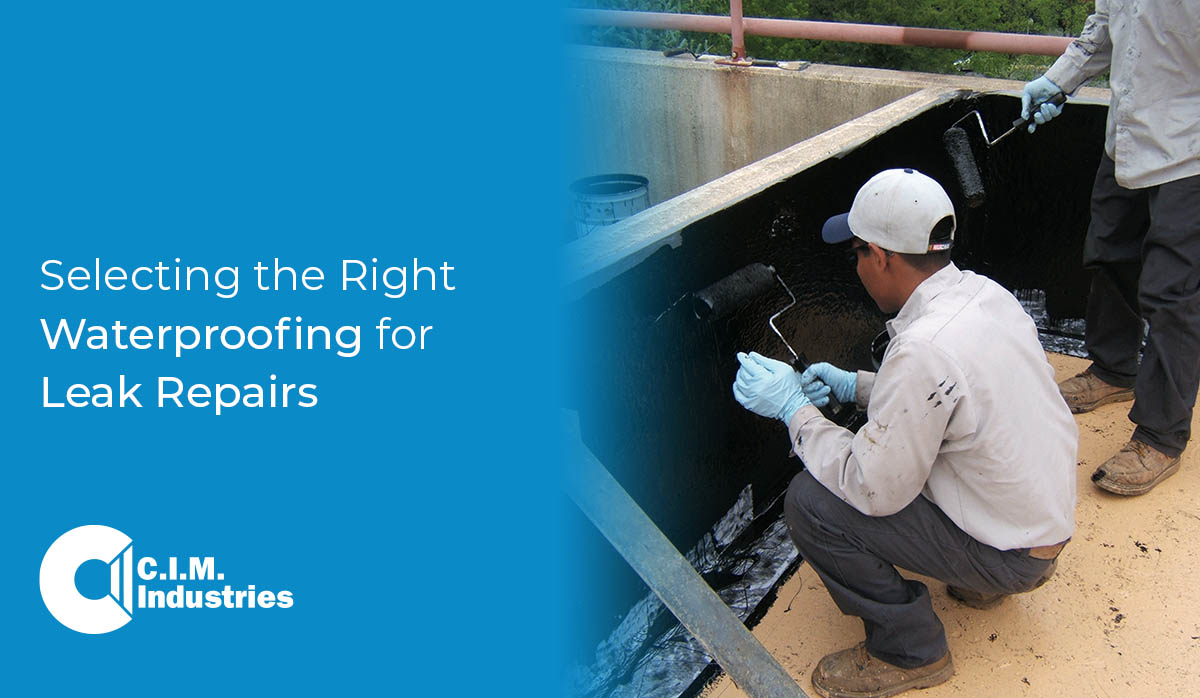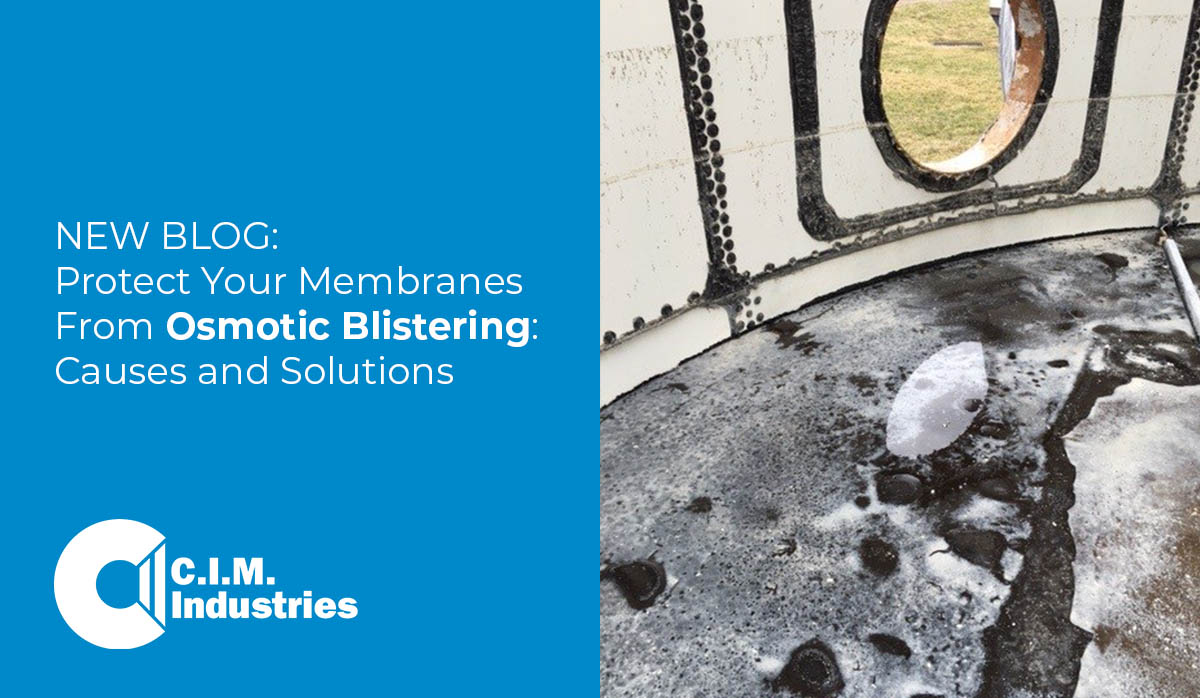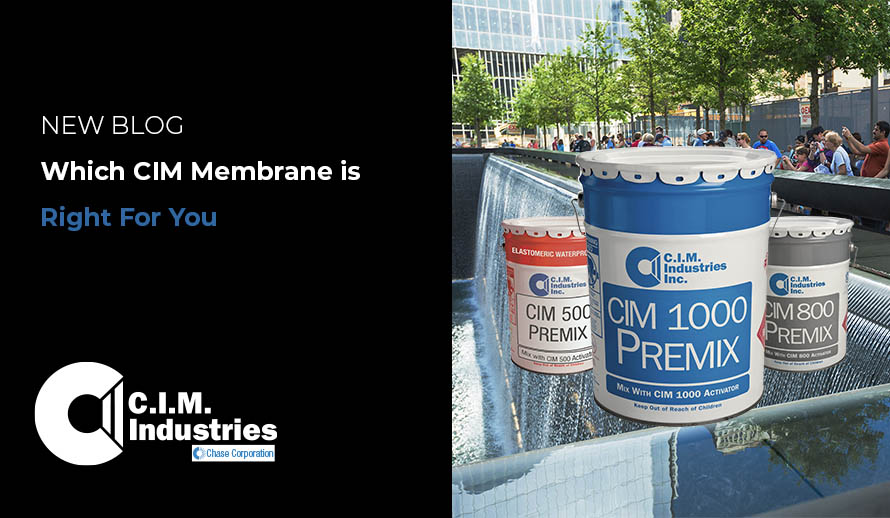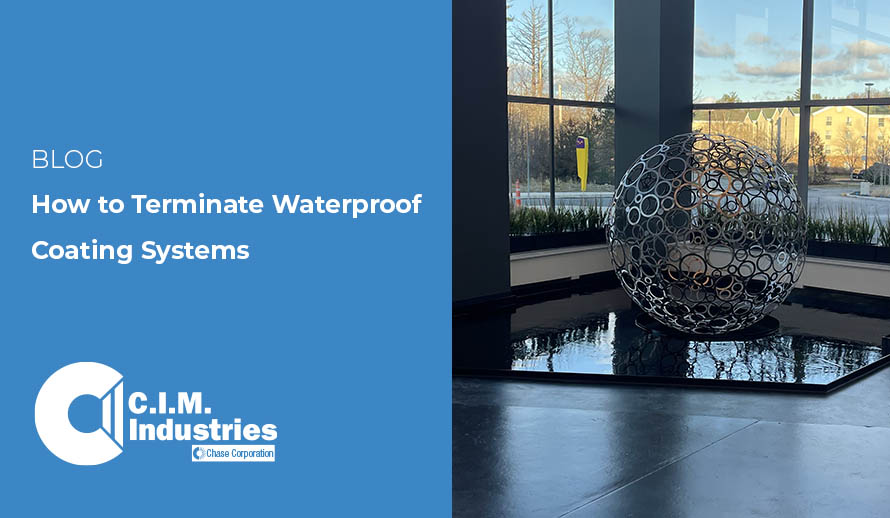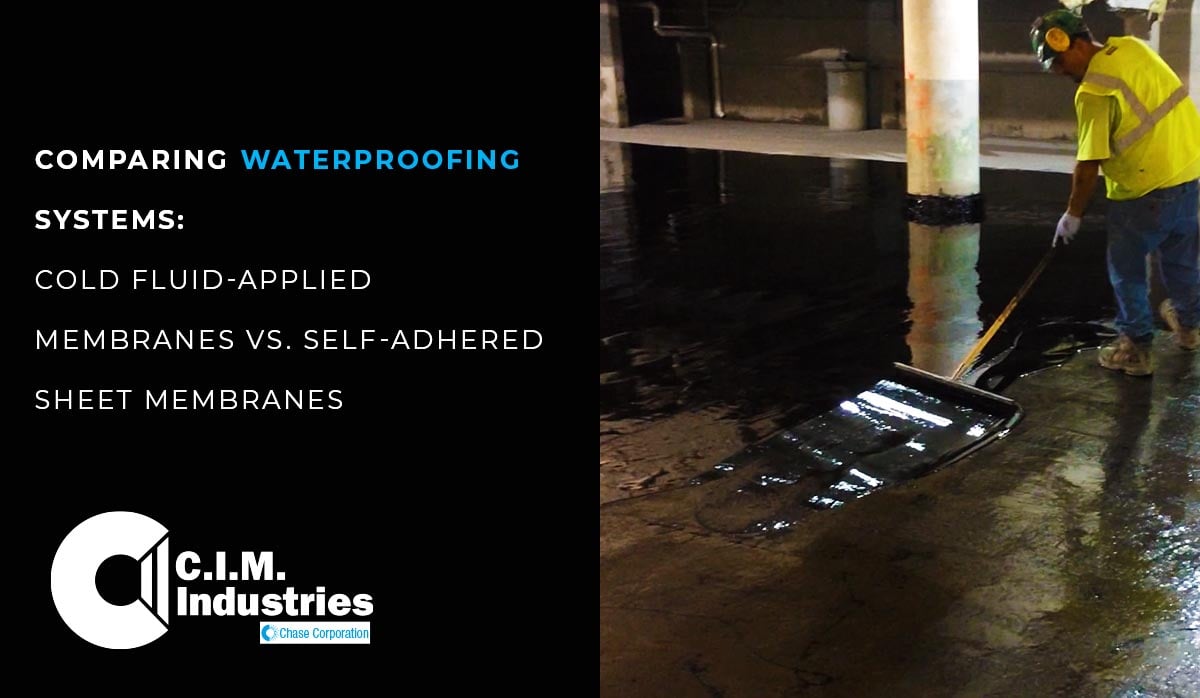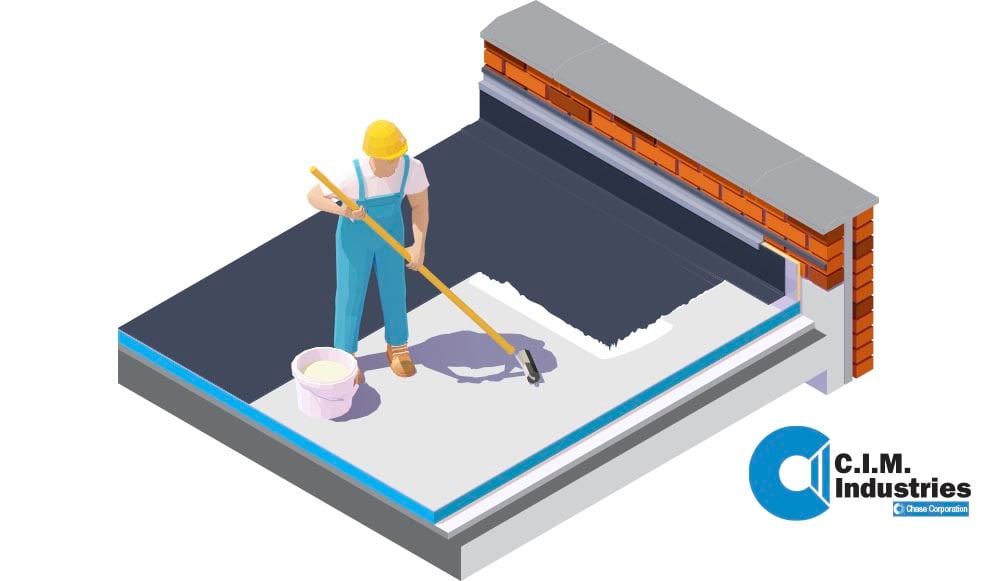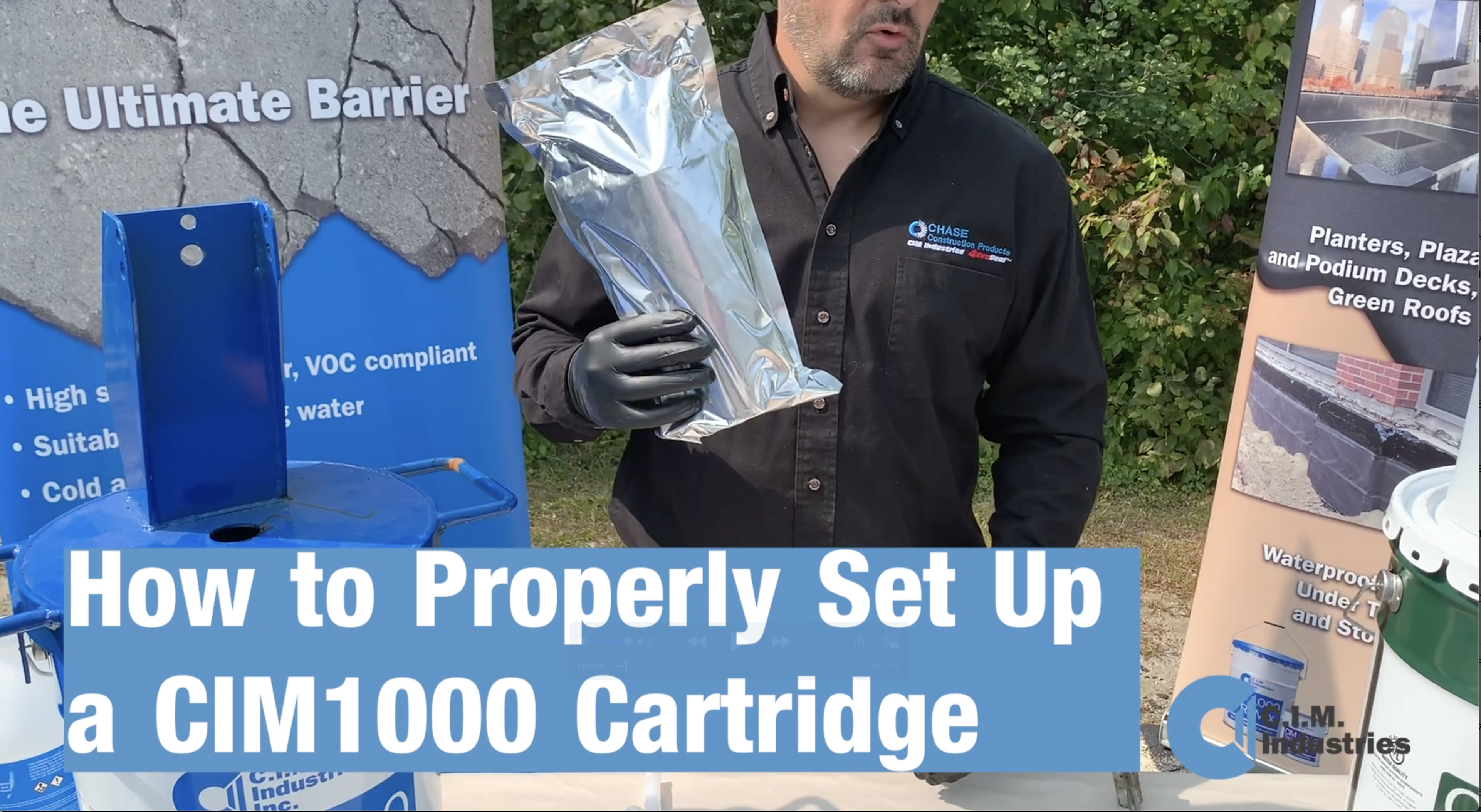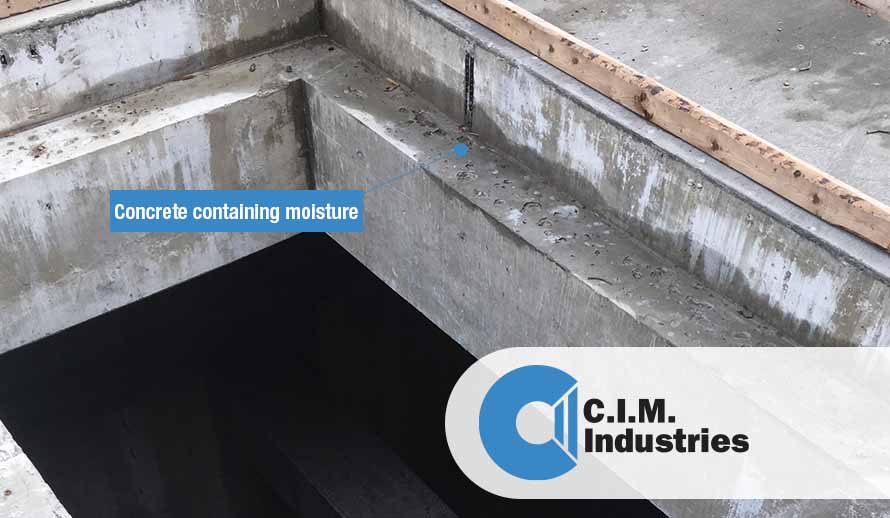Let's begin by pondering this question: Why is waterproofing given less priority (left out entirely) during the pre-construction planning phase of any commercial or residential projects? This trend is truly baffling as proper waterproofing care leads to innumerable benefits in the long-term life and performance of any construction project.
Related Article: Waterproofing is the Future of Construction
Read More
Topics:
Concrete Waterproofing,
Liquid Applied Waterproofing,
Construction
The global waterproofing membrane market is on the rise. With a focus on infrastructure and housing options, growth prospects in the construction sector continue to rise. Markets (including the United States, China, Brazil, and India) are seeing above-average growth in new building opportunities and restoration projects, resulting in an increased demand for elastomeric and waterproofing membranes and other coating products.
With rapid growth worldwide, CIM Industries and its selection of waterproofing solutions, namely CIM 500, has started to corner the market with its revolutionary technology. CIM 500 is a two-part cold liquid waterproofing membrane designed to meet the demands of buried or non-UV exposed applications.

Read More
Topics:
waterproofing,
Fluid-applied Waterproof Membranes,
Construction
There is a large misconception in the waterproofing industry that all cold fluid-applied waterproofing membranes are susceptible to osmotic blistering. But this is not the case. Over the years, costly waterproofing repairs have led to a lack of confidence in using cold fluid-applied waterproofing membranes in damp, wet, and immersion environments. Understanding what osmotic blistering is, knowing why it occurs, and choosing the correct product for each job will help minimize the potential for osmotic blisters.
Read More
Topics:
Surface preparation,
membranes,
Osmotic Blistering,
Waterproof Preparation,
Waterproofing Membrane
Chevron raised the standards on cold fluid-applied waterproofing membrane applications when they introduced a urethane coating system for synthetic running tracks in the 1960s. Over several decades, this urethane technology morphed into a waterproof bridge deck membrane, now widely recognized as Chase Industrial Membranes (C.I.M. Industries), the leader in the industrial waterproofing market.
Read More
Topics:
CIM Concrete Waterproofing,
waterproofing,
Bridge Deck Preparation,
Fluid-applied Waterproof Membranes
Identifying termination points and properly terminating waterproof coatings are two critical aspects of a waterproofing system’s long-term success. Whether you are applying the coating system to a roof, floor, tank, or fountain; in hot or cold climates; or to concrete, wood, steel, or any other construction materials, correctly terminating the waterproofing system is essential.
Termination points are areas where the waterproofing membrane stops or is no longer applied.
Read More
Topics:
Coating Application Preparation,
Liquid Applied Waterproofing,
waterproofing,
Fluid-applied Waterproof Membranes
Whether you are in the residential or commercial building industry or in the new construction or building maintenance business space, waterproofing is not something to be overlooked. Waterproofing systems work by creating physical barriers to water. They keep water out of places it doesn’t belong and in places where it does belong.
Read More
Topics:
Coating Application Preparation,
Liquid Applied Waterproofing,
waterproofing,
Fluid-applied Waterproof Membranes,
Membrane Surface Preparation,
Water-blocking Materials
With many varieties of elastomeric coatings on the market, it should be no surprise that there are many different application methods to consider. So, how do you choose the best plan for your next project?
This article will focus on polyurethane, cold, fluid-applied, elastomeric waterproofing coatings. These products can be hand-applied using a brush, roller, or squeegee or with specialized spray equipment. The application method is often predicated by project conditions that influence the contractor's ability to apply the material as a uniform coating at the required thickness.
Read More
Topics:
CIM Cold Weather Application,
CIM Concrete Waterproofing,
Concrete curing,
Hand Applied,
Spray Applied
It is critical that the appropriate amount of CIM Activator be mixed with the appropriate amount of CIM Premix. Therefore, each CIM product comes packaged with pre-measured quantities of Activator and Premix.
Read More
Topics:
CIM Activator,
CIM premix
CIM 1000 Trowel Grade Cartridges are ideal for small applications such as penetrations, joints, cracks and many other small repairs. Cartridges are commonly used for adhesion test patches and repair of CIM coatings.
Cartridges may be partially used and re-sealed for future use, eliminating excess waste where only a small amount of CIM is needed.
Read More
Topics:
CIM 1000 Premix,
CIM Concrete Waterproofing,
waterproofing,
CIM industries
There's no avoiding the fact that concrete contains moisture, yet a critical component for successful adhesion of a coating system to a concrete substrate is having a dry substrate. Knowing how to test for moisture and addressing the conditions causing it are things all contractors should familiarize themselves with before applying coatings. Consulting with the coating manufacturer and reviewing the manufacturer's technical data sheets are excellent ways to gain this information.
Read More
Topics:
Liquid Applied Waterproofing,
Concrete curing,
Preventing moisture in concrete

